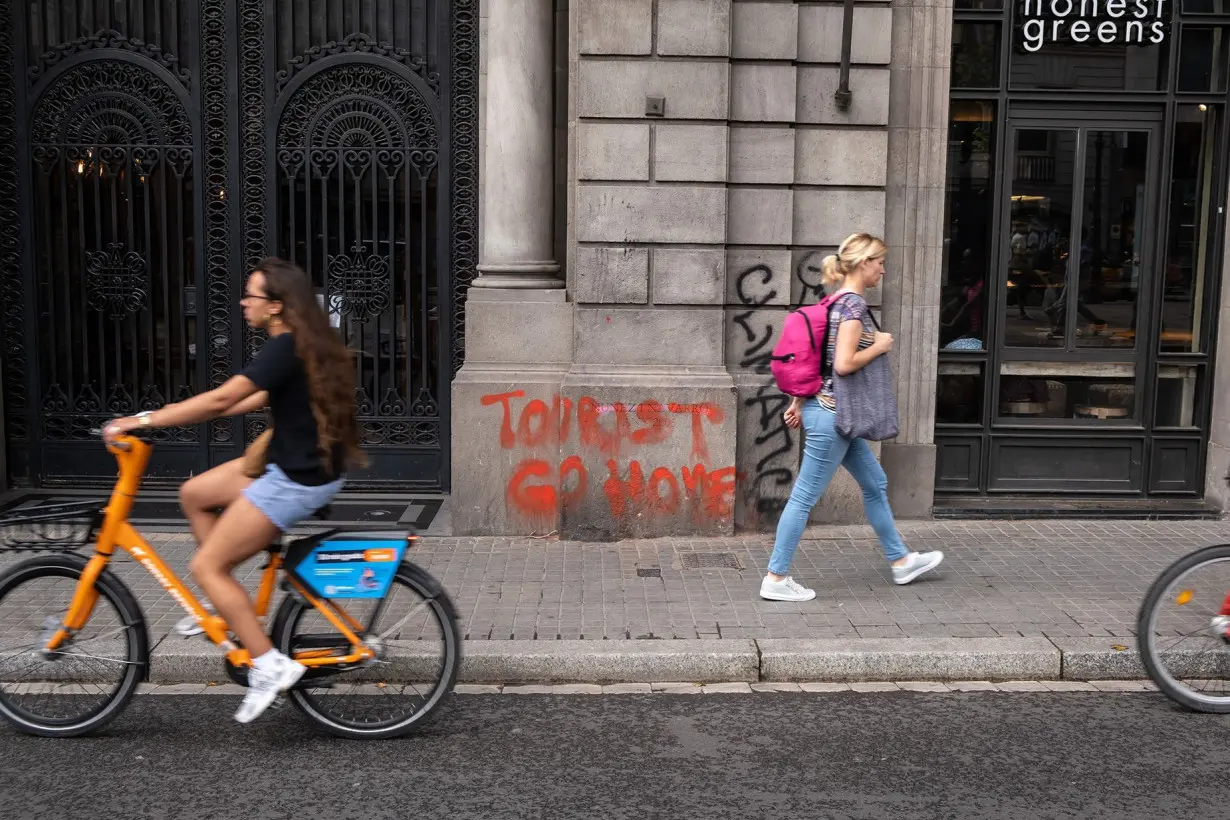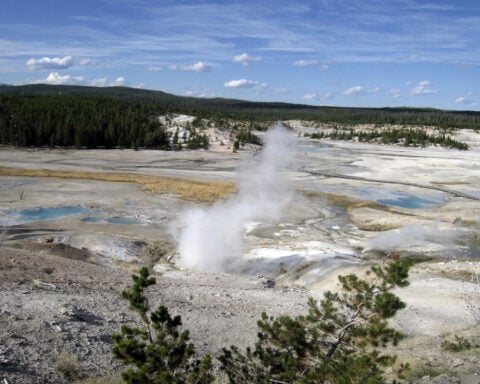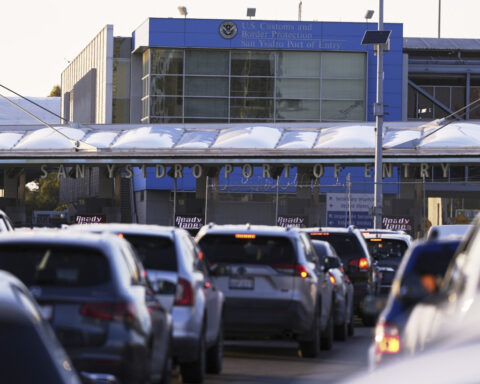(CNN) — Protests in the streets. Graffiti warning tourists to go home. Local populations dwindling as short-term rentals mushroom and price residents out.
It feels like this was the year that tourism turned nasty – and local communities started pushing back.
Venice has started charging daytrippers an entry fee, while one busy Swiss town has announced it wants to follow suit. Locals have staged protests in Mallorca and Barcelona.
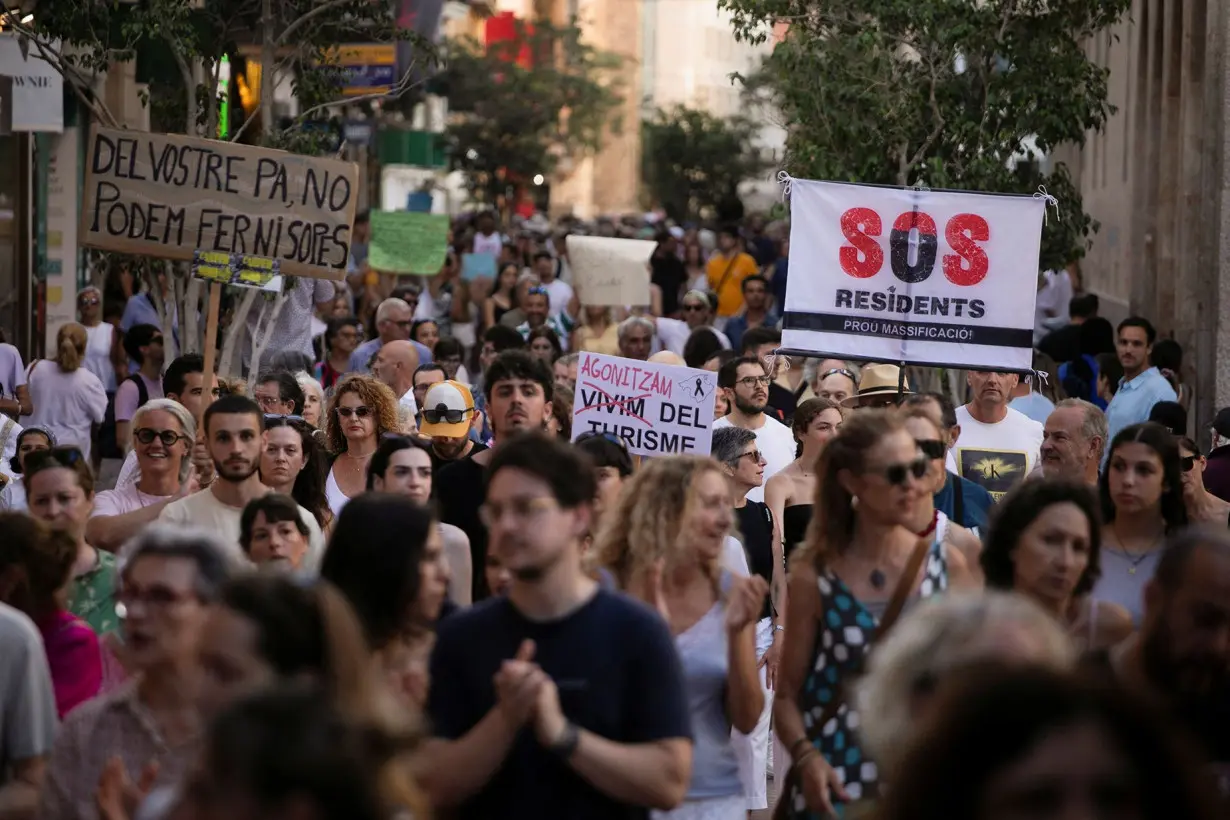
And while it has come to a head in Europe, this is a global phenomenon. A Japanese town overlooking Mount Fuji erected view-blocking barriers in May (then removed them in August). Bali introduced a tourist entry tax for foreign visitors in February. And US national parks are full to bursting – with 13 million more visits in 2023 than in 2022, according to NPS numbers. In peak season, visitors must book ahead to enter.
Increased enthusiasm doesn’t seem to correlate with increased respect for the landscape, however. During the 35-day government shutdown in 2019, visitors did damage to Joshua National Park that would take centuries to rectify, officials said at the time.
The risk, as professor and environmental specialist Emily Wakild wrote for CNN in 2023, is of “loving a place to death.”
“This isn’t something new, or something which has just happened,” says Noel Josephides, chairman of European tour operator Sunvil.
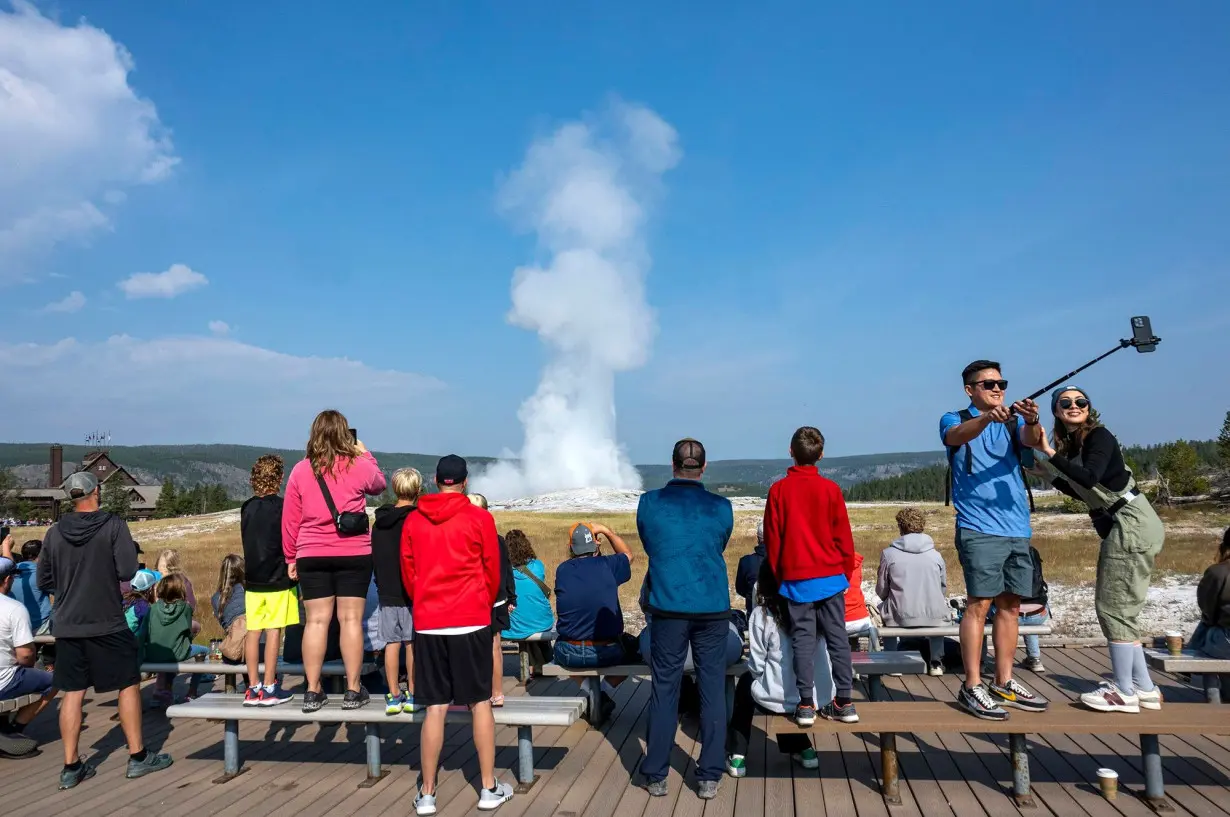
Josephides thinks the current chaos was predictable years ago. He says he feels “ashamed” of what the industry has done to destinations.
“I’ve lost faith in what our business is about,” he says about the havoc the tourism has wreaked in Europe.
Other veterans agree. The only question is whether we can emerge from it and reset travel to become the beautiful experience we’ve all known and treasured.
‘The industry forgot about local goodwill’
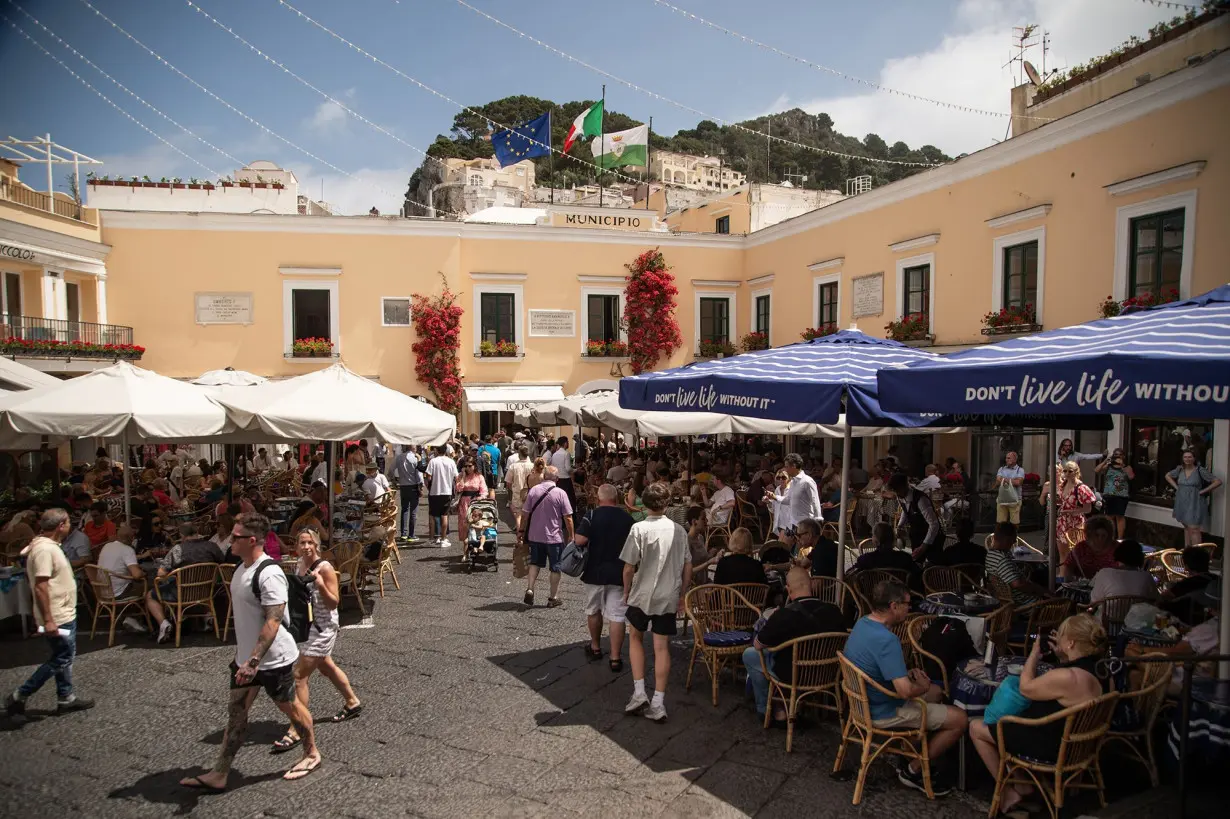
Justin Francis has spent his life feeling the uncomfortable effects of mass tourism.
He grew up in one of the UK’s most visited cities, Bath – which he remembers as being particularly popular with Americans when he was a child in the 1970s.
“I remember being astonished at these alien-like people, and how loud they were – shouting to each other,” he says.
“They stood around and blocked the way. I felt invisible.”
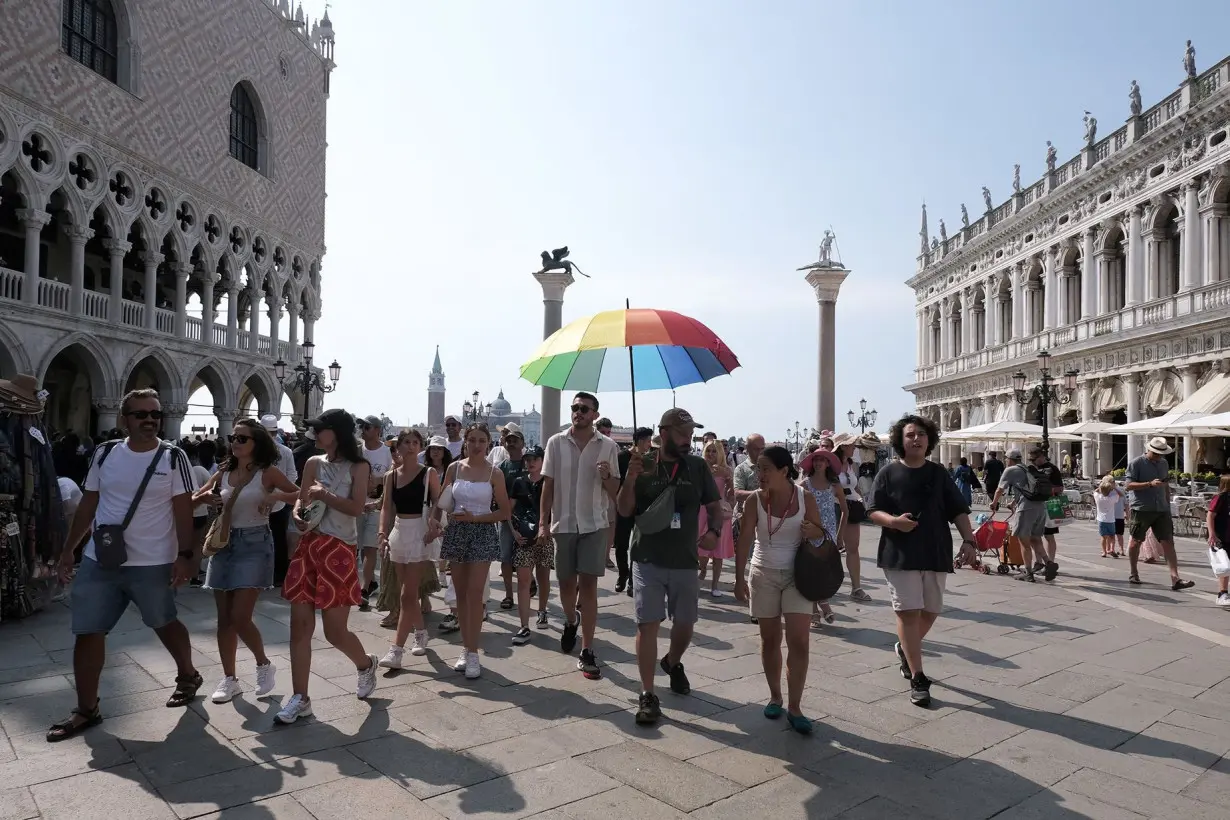
It was these early experiences that led Francis to found Responsible Travel – a tour operator working with small, locally owned properties and guides – in 2000.
But his idea of travel as a halcyon experience providing one-to-one connections between cultures seems to have gone by the wayside in recent years.
“Tourism has gone right in many places, but broadly [the industry] has lost the trust of local people,” he says.
“It’s been really, really bad this year,” he says of the protests and overtourism incidents. It’s been brewing for a really long time – it didn’t take a lot of imagination or foresight [to predict].
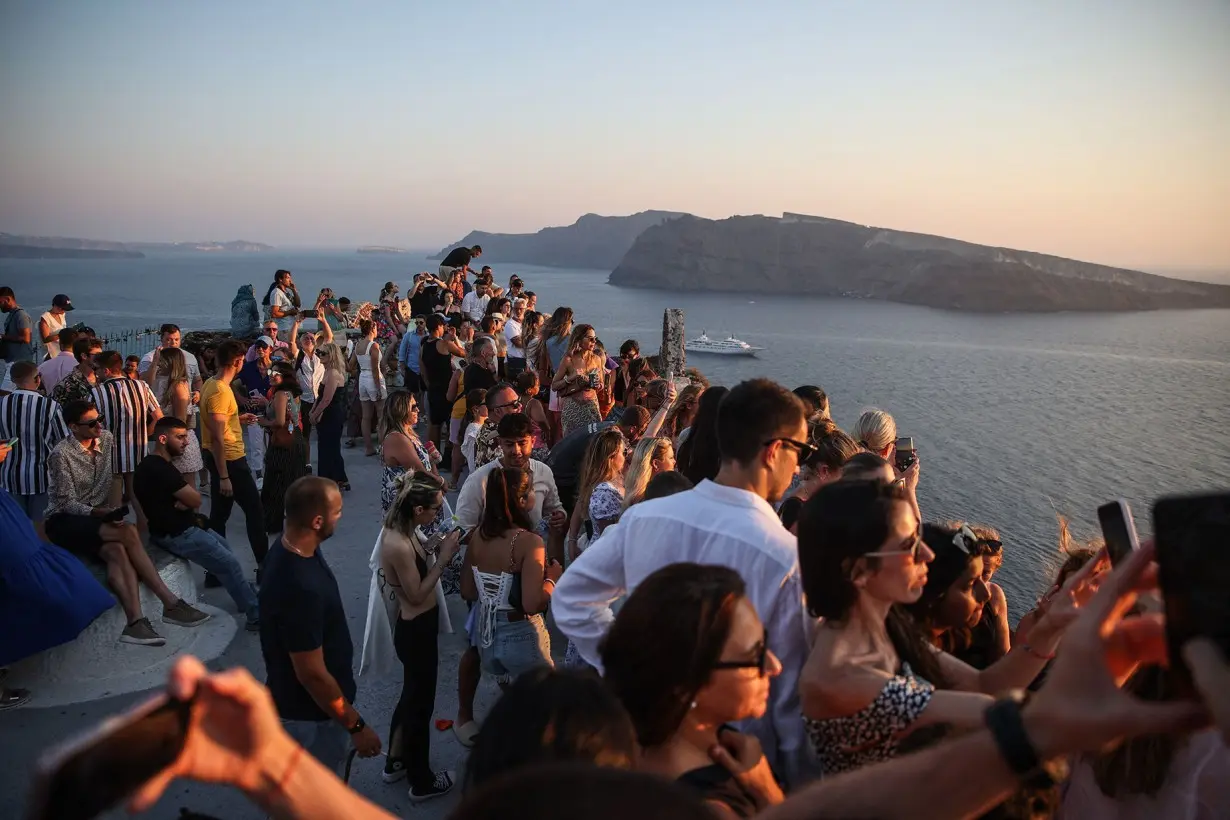
“The tourism industry forgot about its most precious asset: the goodwill of locals. The edifice collapses without that. It’s been lost in many places and will be hard to win back.”
Francis puts it down to a combination of factors: the growth of low-cost airlines, vacation rentals, social media (which creates stampedes to “in” destinations) and expanding economies – meaning more people can afford to travel.
Now, he says, we’re left with the “stark realization that tourism is an aggressive industry like most others, and needs regulating and controlling.”
A ‘race to the bottom’
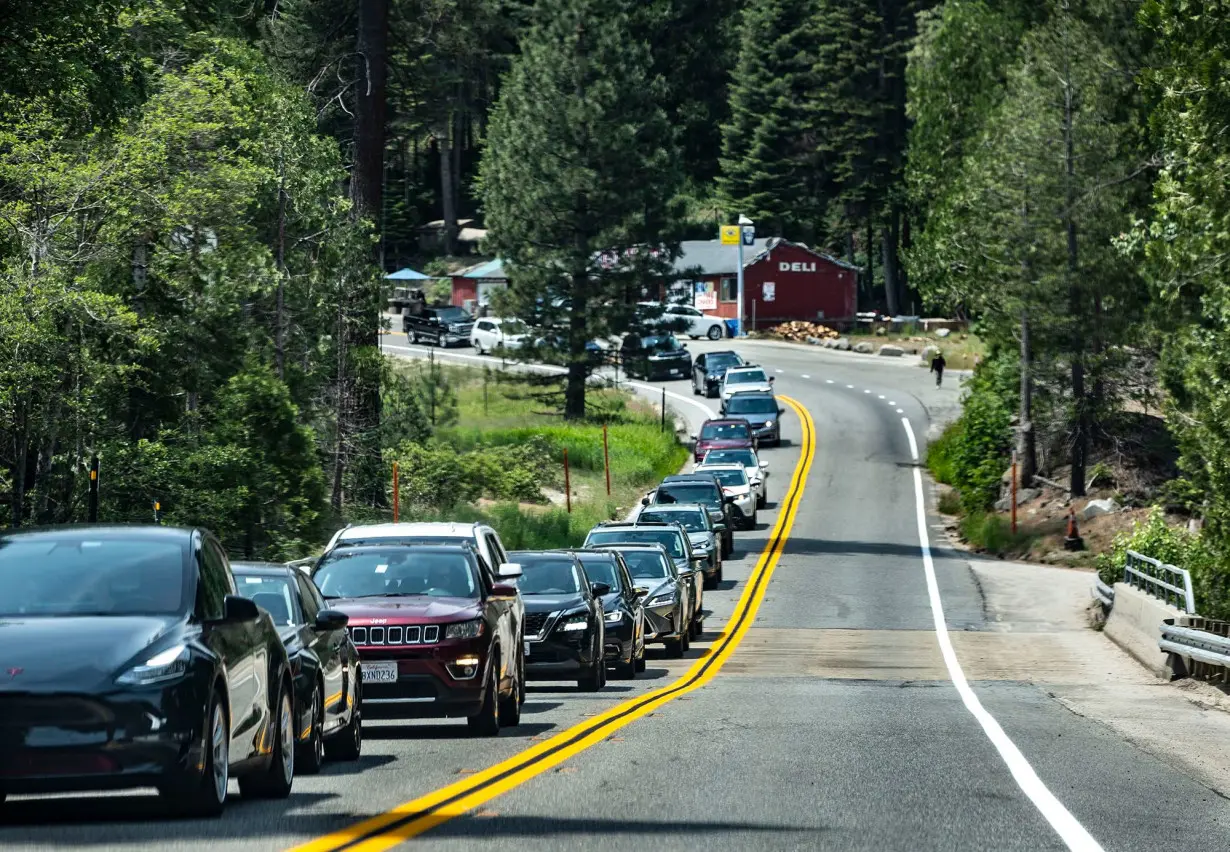
Noel Josephides – who’s been sending clients from Northern Europe to the sunny Med since 1970 – agrees. Much of his work has involved scouting out new locations he knows the public would love – the company was the one of the first to send package tourists to the Greek island of Skiathos in the 1980s, he says – as well as to another Greek island, Lemnos, and the Portuguese archipelago of the Azores.
The “creation” of a destination is relatively simple, he says. Tour operators scout it, locals invest in vacation infrastructure – often supported financially by the tour operators – and small tour operators add it to their books.
If the destination sells well, the larger tour operators swoop in.
And, he says, if one decides to put on an aircraft to that destination, the others swiftly follow suit.
“Suddenly you go from one flight a day to four or five,” he says.
And suddenly, tourism changes in that destination. The tour operators need to fill their planes, and with more flights going, they need to expand the market. What might have started out as a high-class destination for those in the know suddenly becomes a mass-market place.
“It happens over a few years and you almost don’t notice – but suddenly you have the local tourism industry complaining that nobody is eating in restaurants, or they’re eating one dish not two, or they’re not doing excursions, because the ‘new’ people can afford the price of the package [but nothing else]. So you get a reaction locally,” he says.
Josephides is a formidable name in European travel – he’s also a former chairman of ABTA (Association of British Travel Agents), AITO (Association of Independent Tour Operators) and the Travel Foundation, the industry’s sustainability charity.
And he admits his part in the process. “You could say we were responsible for beginning the process [in Skiathos], but we only got so far. We appeal to a certain market. The market I’d call destructive – the volume – doesn’t come to us,” he says.
Yet he believes the travel industry as a whole is currently “out of control” and “a race to the bottom” – one that’s changing how locals feel about the visitors descending on them.
“I don’t think people are anti-tourism, but they’re beginning to understand finally that it has to be controlled,” he says.
“If it’s not, then what people come to see will be so degraded it’ll end in tears.”
He cites the Greek islands of Mykonos and Santorini, which are now notoriously oversaturated. Earlier this month, a Santorini tour operator told CNN that the island is “empty” and this summer has been its “worst season ever” – because people are put off by the images of crowds – many of whom are day-trippers from cruise ships.
“Once you’ve filled the golden goose you start a downward spiral,” says Josephides. “It’s very difficult to get back to where you were before.
“You can’t expect destinations to know what will happen in 10 years – they don’t know the whole thing can get out of control. The blame is very much on the travel industry that knows what’s going to happen.”
‘Out of balance’
Not everyone on the ground is so negative.
Pedro Fiol, president of AVIBA – the Association of Travel Agents of the Balearic Islands, the archipelago off Spain’s east coast, which have been at the heart of protests this summer – says that “the vast majority of society” are not protesting against tourists.
The airport on Mallorca – the largest of the islands – sees up to 1,000 flights a day (either landing or departing) during the summer season, according to a spokesperson.
Yet Fiol believes that much of the issues of infrastructure, and lack of public transport and housing are down to poor political decisions as much as tourism.
One way tourism in the Balearics has changed is that people are no longer staying put on the beach – they’re using public transport to visit inland towns.
“On the one hand it’s positive because they generate income for local commerce but on the other they can collapse basic infrastructure since these small towns are not adapted to receive so many tourists,” he says.
With rising prices, some tourists try to either cut back on quality or stay less time, he says. But cutting back on tourists who spend less without increasing the higher quality spend first would “cause a very negative economic impact for our islands,” he says.
“Residents are demanding changes, but those changes will not come without a solid economy coming from the tourism sector that can drive an improvement and modernization of our social systems and infrastructures,” he says.
Fiol’s concern over the rural island interiors struggling to cope with increased demand is a key point for Jeremy Sampson, CEO of the Travel Foundation.
“I don’t think overtourism is the root cause but a symptom – we’re out of balance,” he says.
“You can host lots of people if you’re intentional about how they flow through. But just one person coming at the wrong time and wrong place will outstrip the available resources.”
Jaume Bauza, the Balearics’ minister of tourism, culture and sports, tells CNN that the government has created a committee “aimed at developing a social and political blueprint for sustainable tourism.”
“Residents’ concerns are a key priority for us. We cannot forget that tourism is the main economic source for our community, but we must put locals first, and not forget their demands and concern,” he says.
‘Enough is enough’
Accommodation is a major factor in how locals view tourism, say these experts.
“When you ask locals about their biggest frustrations, it’s mainly ‘I can’t afford to live here,’ says Francis. “Holiday rentals have taken way places people could have rented or bought.”
In Venice, another hot spot, there are over 8,000 properties listed on Airbnb alone, according to data from Inside Airbnb, compared to under 50,000 residents.
Sampson says that the growth of short-term rentals is second only to that of cheap flights as a cause of tourism’s problems today. “The pace of growth from private sector typically outpaces planning cycles – the pace needs to be aligned with reality,” he says.
Josephides says that short-term rentals prop up expanding flight routes. “Big operators can’t [expand] without clients going to Airbnb – one can’t do without the other,” he says. “If it wasn’t for this increase in capacity, the Airbnb market wouldn’t exist.”
Speaking about Mallorca and the Balearic islands, Fiol calls short-term rentals a “very serious problem” that “have caused an unpredictable increase in the number of visitors… we are having disproportionate tourist flows in some part of our territory.”
“Direct sales together with vacation rentals have been the cause of this uncontrolled increase of tourists, which none of our institutions knew how to foresee,” he says.
Bauza has called on Airbnb and short-term rental platforms “to help us in the fight against illegal rentals by only listing legitimate tourist properties on their platforms.”
In February, the EU voted for more transparency around short-term rentals, something which Airbnb said it “welcomed.”
VRBO did not respond to a request for comment, but an Airbnb spokesperson blamed “hotel-driven mass tourism” overwhelming popular historic destinations.
“In contrast, Airbnb accounts for a small proportion of visitors to Europe, spreads guests and benefits to more communities, and helps local families afford their homes,” the spokesperson said.
“Airbnb works with governments across the world to diversify tourism and make communities stronger, and we are eager to advance this work.”
Josephides also has all-inclusive resorts in his firing line. Travelers like them because it means they know their costs in advance, and for the tour operators it’s “very convenient – you control how [people] get there, how much they spend – it’s a bubble, almost like a cruise.” But the effect in the communities can be devastating. “They create ghost towns,” he says.
“Tour operators say they’re providing jobs for local people and sourcing food locally. What they’re not saying is that those people used to have their own [restaurant] before.”
“The more you look at it, the more frightening it gets. At the moment we’re seeing a culmination – all these problems are coming home to roost,” he says.
“Enough is enough.”
Neither Jet2 Holidays – the UK’s largest tour operator – or Tui – one of the largest in the world – responded to CNN’s request for comment.
‘Like a vision of hell’
But was it ever thus? Lucy Lethbridge, journalist and author of “Tourists,” which traces the history of tourism from a British perspective, says there has always been a kind of snobbery about who should travel.
In the early 19th century, she says, businesses such as Thomas Cook – a tour operator which went bust in 2019 after 178 years in business – “opened up the idea of travel for pleasure, which had been an exclusively aristocratic preserve, to the middle classes.”
Right from the start of this Victorian “mass” tourism, there were complaints about crowds – “but they usually came from other tourists,” she says. “On the whole, people who lived in places that became tourist destinations welcomed the crowds, because it changed lives of hard agricultural graft completely.”
That tension between being a tourist and a traveler, or the “right” and “wrong” kind of tourist, has always been there.
“People were very snobbish about group tourists – that they were lower class and didn’t know anything,” she says.
“It’s persisted today. Everyone tends to think – no matter what group they’re in – that they’re not the tourist, they’re the traveler.”
She says that tourism “is an interesting force – it destroys the thing it seeks.”
Three years ago, she went to Santorini. “It’s so crowded and everyone is taking the same photo of the same sunset over the same rooftops,” she says.
“It was like a vision of hell.”
Can we save tourism?
So what’s the solution?
Josephides thinks any change has to be at governmental level. “There has to be a collaboration between the sending and receiving countries – the power shouldn’t be in the hands of [the industry],” he says. “Airlines will keep expanding and expanding because that’s what their shareholders expect. You’ll never be able to get a big tour operator to agree to a moratorium on numbers.
“In 10 years time there’ll be destinations that have got it right and those that are past the point of no return.”
Sampson says that DMOs (destination marketing organizations) should switch from encouraging tourism to “balancing” it.
“As they grow stronger in their ability to have the right funding, governance, and the tools to do something about it, it can and will change,” he says. He thinks that a shift from day-to-day firefighting to long-term planning will shift the needle.
Fiol says that those wary of worsening problems in the Balearics could visit off-season. While it’s still sunny in spring and fall, he says winter is the time for “immersive tourism” focused on food, culture, wellness and “an endless number of activities that will surely surprise them.”
Francis says that we can all do our bit, too. Stay in a hotel not a rental, says Francis, to avoid stripping locals of their housing. Make that a locally owned hotel, so your money stays in the community.
If you really want to rent, try a room in a house, rather than a whole property – “the original vision of Airbnb,” he says – and see if the person advertising the property has just the one, or multiple properties.
And once you’re on the ground, hire local guides – not only can they help navigate overcrowding, but you’ll be leaving money in the local economy.
“Tourism is a deal,” says Francis. “Local people let you in, in return for you providing some benefits. So you really should put as much money in genuinely local hands as possible. You’re there as a guest and the return is financial – but I don’t think that should be a hardship. You’ll get a different experience.”
The-CNN-Wire
™ & © 2024 Cable News Network, Inc., a Warner Bros. Discovery Company. All rights reserved.

 Trump has begun another trade war. Here's a timeline of how we got here
Trump has begun another trade war. Here's a timeline of how we got here
 Canada's leader laments lost friendship with US in town that sheltered stranded Americans after 9/11
Canada's leader laments lost friendship with US in town that sheltered stranded Americans after 9/11
 Chinese EV giant BYD's fourth-quarter profit leaps 73%
Chinese EV giant BYD's fourth-quarter profit leaps 73%
 You're an American in another land? Prepare to talk about the why and how of Trump 2.0
You're an American in another land? Prepare to talk about the why and how of Trump 2.0
 Chalk talk: Star power, top teams and No. 5 seeds headline the women's March Madness Sweet 16
Chalk talk: Star power, top teams and No. 5 seeds headline the women's March Madness Sweet 16
 Purdue returns to Sweet 16 with 76-62 win over McNeese in March Madness
Purdue returns to Sweet 16 with 76-62 win over McNeese in March Madness
